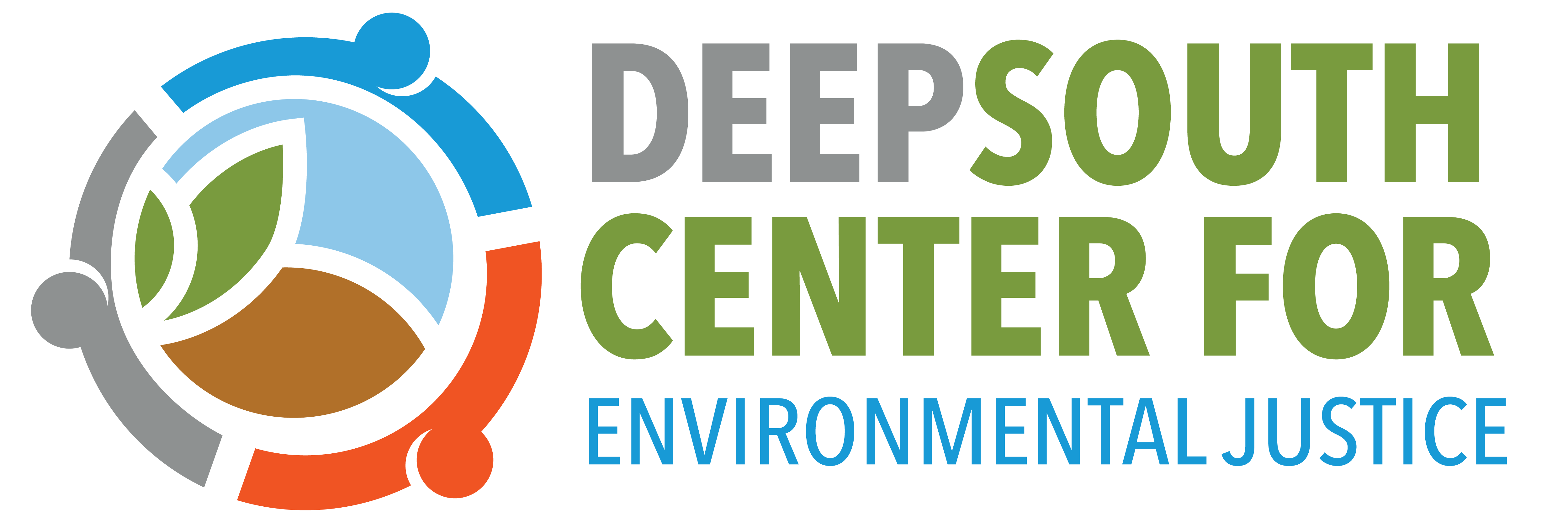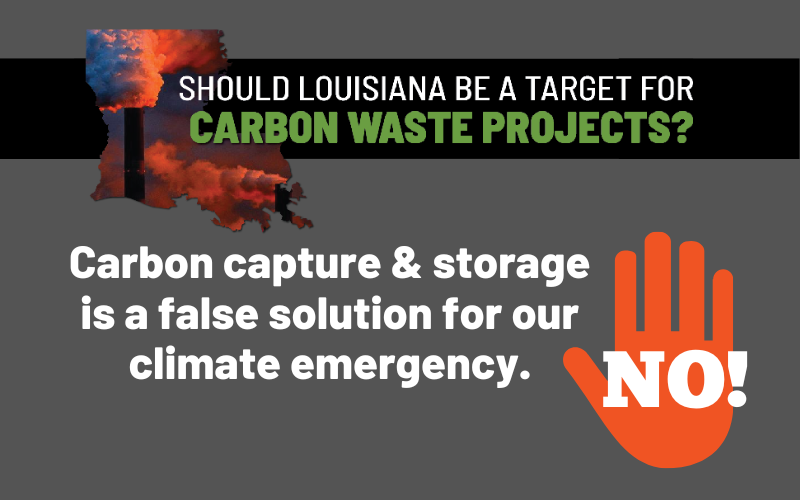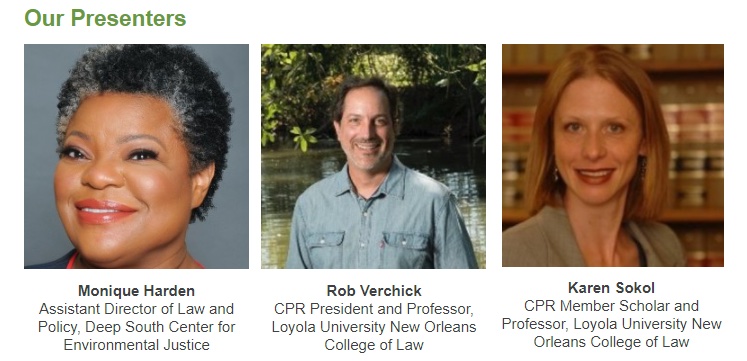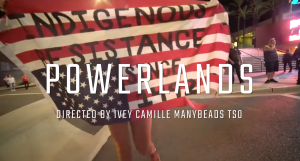
May 5, 2022 | Community Engagement News, DSCEJ General News, The Latest News
The Southern Premiere of Powerlands, featuring a post-screening discussion w/ local organizers & the filmmaker.
About this event
Presented by Deep South Center for Environmental Justice and PATOIS Film Collective: Powerlands, a new film about Indigenous Rights and Environmental Justice. Screening and Benefit, Wednesday, May 18, 6:30pm, at the Broad Theater. Featuring a post-screening discussion with:
- Shannon Rainey, President of Residents of Gordon Plaza
- Donny Verdin, Vice Principle Chief, United Houma Nation
- Powerlands Director Ivey Camille Manybeads Tso
Tickets: $10
All proceeds from this event will be equally shared with the United Houma Nation & the Residents of Gordon Plaza.
ABOUT POWERLANDS
A young Navajo filmmaker investigates displacement of Indigenous people and devastation of the environment caused by the same chemical companies that have exploited the land where she was born. On this personal and political journey she learns from Indigenous activists across three continents. Powerlands is the winner of best film at 2022 American Documentary Film Festival (AmDocs). This screening is the US Southern Premiere.
ABOUT IVEY CAMILLE MANYBEADS TSO
Ivey Camille Manybeads Tso is an award-winning queer Navajo filmmaker, and a recent fellow with the Firelight Media Documentary Filmmaker Lab. She started making films at the age of 9, through the Native youth media project Outta Your Backpack Media. At the age of 13 she made the award-winning fiction film In the Footsteps of Yellow Woman, based in the true story of her great-great-great grandmother Yellow Woman, who lived through the Navajo Long Walk of 1864-1868. The film screened in over 90 film festivals internationally and won 11 awards. Ivey Camille continued to refine her filmmaking craft with a full scholarship to Idyllwild Arts Academy in California. She later returned home to work on films in her community of Navajo Nation. At the age of 19, Ivey Camille began work on Powerlands, her first feature.
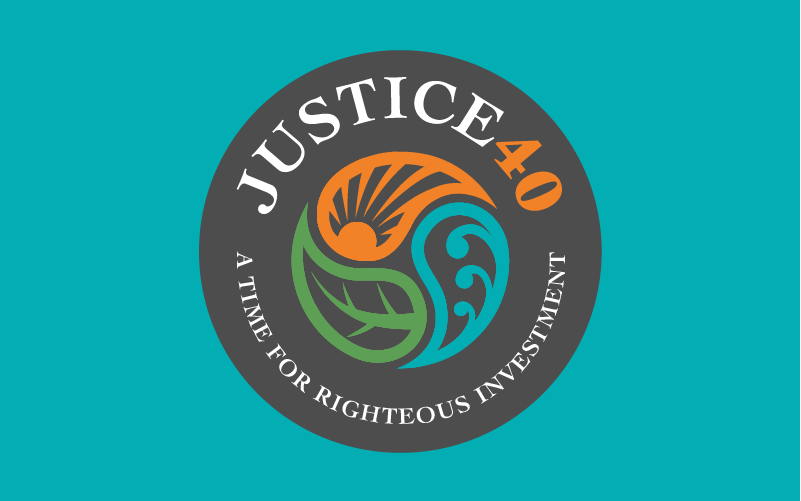
Apr 20, 2022 | DSCEJ General News, HBCU Climate Change Conference News, Justice40 News, Student Engagement News, The Latest News
New Orleans, Louisiana — Last week, Dr. Beverly Wright of the Deep South for Environmental Justice joined Peggy Shepard of WE ACT for Environmental Justice and Dr. Robert Bullard of the Robert D. Bullard Center for Environmental and Climate Justice to announce plans to support the equitable implementation of Justice40 at the state and local level and empower local communities to participate in the policy-making process.
The announcement kicked off the Eighth Annual HBCU Climate Change Conference, bringing together HBCU faculty and students, researchers, climate professionals, and environmental justice and coastal community residents impacted by toxic facilities and severe weather events. Notable speakers included Dr. Beverly Wright, Dr. Robert Bullard, video remarks from the United States Presidential Envoy for Climate John Kerry, Louisiana Congressman Troy Carter, Regional Administrator for EPA’s Southeast Region Daniel Blackman, Senior Advisor to EPA Administrator Michael Regan, Robin Morris Collin, New Orleans City Councilman Oliver Thomas, among many scholars, students, advocates, and experts.
Select coverage of the Justice40 implementation announcement and the HBCU Climate Change Conference can be found below.
AP: HBCU students, and faculty press urgent need for climate action
04/15/2022
Drew Costley
Both joy and frustration are in the air in New Orleans at the HBCU Climate Change Conference this week as environmental and climate advocates and researchers from around the United States press for urgent climate action and pollution cleanup in poor communities and communities of color.
The conference, which goes through Saturday, has featured top officials and key advisors in the Biden administration, environmental and climate justice advocates from around the southeastern United States, and faculty and students from the nation’s historically Black colleges and universities sharing their research.
Longtime leaders Beverly Wright and Robert Bullard, who are also conference co-founders and members of the White House Environmental Justice Advisory Council, expressed excitement over the changes.
“The movement has changed,” said Wright, who is also director of the Deep South Center for Environmental Justice. “It’s resourced for the first time at a level higher than it’s ever been resourced before.” For the first time in decades organizations like hers have been able to compensate grassroots organizations for community-based research, she said.
Wright said at a community forum to kick off the conference on Wednesday night that when she began doing environmental justice work back in 1990, there were 132 petrochemical facilities along the 85-mile corridor from New Orleans to Baton Rouge known by some as Cancer Alley. Now there are two dozen more.
“We live in a state that for years abdicated its environmental protection obligations” with respect to the chemical manufacturing industry, she said.
The HBCU Climate Change Conference is also traditionally a venue for local organizations to share their data and young researchers to present their studies. Major themes in that research this year were tracking air pollution in St. James and St. John parishes in Louisiana, as well as Houston; building flood protection in the port cities of Gulfport, Mississippi and New Orleans, and measuring the cumulative impact of pollution on environmental health in communities of color across the United States.
Reggie Sylvestine, a member of the Alabama–Coushatta tribe in Texas who works in fire prevention and management, was at the conference for the first time and said what he learned was eye-opening.
“I’m learning that all of the impacts are mainly on (other) minority communities,” Sylestine said. “And we’re being left out from getting the help that we need to alleviate these problems.”
Another first-time attendee, Karis Thomas, a psychology student at Howard University, said she’s been inspired to take on a leadership role by watching other students at the conference and seeing the research they’re taking on.
“What I’ve really gleaned from this conference is the student activism and seeing what’s new that’s coming in terms of taking responsibility” in a way that doesn’t rely on government or corporate support, she said. “Because we’ve seen that this work takes decades, it takes years, and we don’t have years.”
Essence: HBCU Students And Faculty Rally For Climate Action At Annual Conference
04/19/2022
Rayna Reid
After being postponed for the past two years due to the COVID-19 pandemic, the Eight Annual HBCU Climate Change Conference, finally convened in person last week, hosted by the Deep South Center for Environmental Justice along with Texas Southern University. The attendees’ discussion focused on several themes, such as air pollution tracking in Houston and Louisiana parishes, impacts on environmental health upon communities of color, and flood protection in Mississippi and Louisiana port cities.
Since the last conference in 2019, there have been many changes on the climate change and environmental justice front, most notably, the presidential transference from Trump to Biden, and the ensuing re-dedication to preserving our planet. The Biden administration created the nascent White House Environmental Justice Advisory Council in addition to an influx of private philanthropy in this space, including the Bezos Earth Fund.
Speaking at this year’s conference, Beverly Wright, a co-founder of the conference and also a member of the White House Environmental Justice Advisory Council said, “The movement has changed…It’s resourced for the first time at a level higher than it’s ever been resourced before…We find ourselves fighting old fights, fights (we thought) we won. And now we’re fighting them all over again. And that’s why we need you young people. This is your fight moving forward…We live in a state that for years abdicated its environmental protection obligations.”
E&E News: EJ advocates have the plan to monitor Biden’s progress
04/13/2022
Kelsey Brugger
The Biden administration has promoted its signature environmental justice initiative as a linchpin of its equity agenda, but few people outside Washington seem to have any idea what it is, three prominent activists said yesterday.
“I have not met many elected officials in my state or in many others who have ever heard of it,” said Peggy Shepard, executive director of New York environmental justice group We Act for Environmental Justice.
Shepard and two other top activists — Beverly Wright and Bob Bullard — yesterday announced their own shadow initiative to “complement” and “supplement” President Joe Biden’s agenda.
Their new three-pronged plan — backed by the Bezos Earth Fund — would track and monitor the federal government’s effort to invest 40 percent of climate-related benefits in areas long inflicted by environmental racism.
A virtual press conference yesterday from Wright and Bullard suggested the advocates are concerned with the administration’s implementation of Justice40, and other environmental justice initiatives throughout the government.
“We’ve seen in the past many situations where good projects ended up having bad results,” said Wright, founder of the Louisiana-based Deep South Center for Environmental Justice. “We don’t want to see that happening at this time.”
The Deep South Center for Environmental Justice will convene regional and national gatherings to foster community buy-in, she said.
Bullard, a professor at Texas Southern University, gave the administration a “passing” grade so far.
Shepard, who co-chairs the White House Environmental Justice Advisory Council, on which Wright and Bullard also sit, explained broadly: “Our efforts are really about accountability.”
The Washington Post: Environmental justice leaders fault White House’s race-neutral approach
04/13/2022
Maxine Joselow
Bullard, who is known as the “father of environmental justice” for his pioneering work, expressed concern that the screening tool would overlook middle-income Black communities that breathe dirtier air today because of decades of federal housing discrimination.
“Middle-income African-Americans who make $50-60,000 a year are more likely to live in neighborhoods that are more polluted than Whites who make $10,000,” he said. “The CEQ screening tool would miss those Black middle-class communities that have to live with flooding that was caused 100 years ago by racial redlining in the ’20s.”
Bullard added that he is developing a “supplemental” screening tool that will include racial demographic data and will “show exactly what’s being missed by not having race” in the government’s screening tool.
The other speakers on Tuesday’s press call were Beverly Wright, founder and executive director of the Deep South Center for Environmental Justice, and Peggy Shepard, co-founder and executive director of WE ACT for Environmental Justice.
The three speakers also unveiled a plan to “engage, enlighten and empower” communities to implement the Justice40 Initiative.
- Wright and the Deep South Center for Environmental Justice will focus on educating communities about the initiative, strengthening partnerships with historically Black colleges and universities, and developing workshops and trainings on Justice40.
- Shepard and WE ACT for Environmental Justice will launch a pilot program in five cities to track the local use of Justice40 funds.
- Bullard and the Bullard Center for Environmental and Climate Justice will create and “field test” the supplemental screening tool.
The projects will be supported by the Bezos Earth Fund, which Amazon founder Jeff Bezos formed in 2020 to provide $10 billion in grants to environmental causes.
NOLA.com: Environmental activists urge Louisiana residents to push for federal clean-energy funds
04/15/2022
Roshaun Higgins
Three environmental advocacy groups are teaming up to teach Louisiana residents how to clamor for more clean energy projects in their communities.
Representatives from the Deep South Center for Environmental Justice, WE ACT for Environmental Justice and the Robert D. Bullard Center for Environmental and Climate Justice said Tuesday that they will hold workshops for community leaders who want insight into environmental advocacy work.
“We’ve seen in the past many situations where good projects ended up having bad results. We don’t want to see that happen this time,” said Beverly Wright, the Deep South Center’s director. “The three of us have come together to pool our resources and knowledge so that we can reach more people and create a movement around Justice 40.”
The model allows local residents to choose and advocate for their climate priorities, Wright said.
About Deep South Center for Environmental Justice
Families in the Gulf Coast deserve to live in communities that are free from deadly air and are more resilient to climate change and extreme weather. The Deep South Center for Environmental Justice (DSCEJ) works to empower and engage communities to put environmental justice and equity at the center of all climate action. Led by environmental justice scholar and advocate, author, civic leader and professor of Sociology Dr. Beverly L. Wright, the DSCEJ uses research, education, and community and student engagement to advocate for policy change, lead health and safety training for environmental careers, develop social and emotional community wellness programs, and create new and environmentally healthy opportunities for the residents of communities disproportionately impacted by historic environmental injustice.
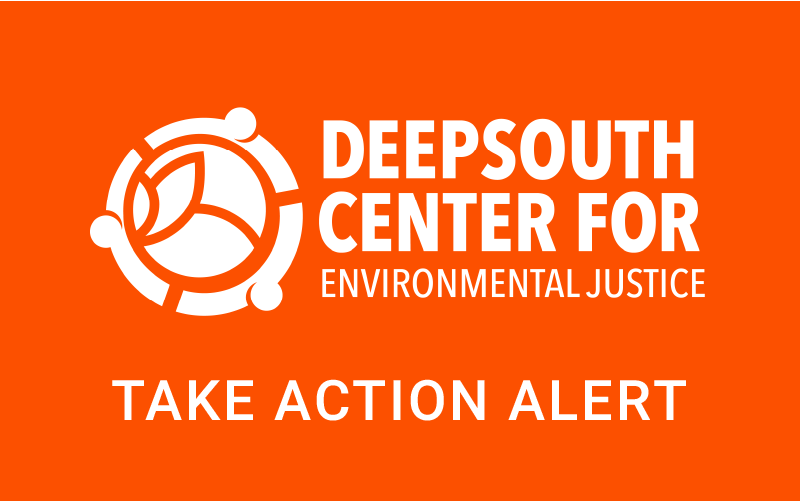
Apr 6, 2022 | DSCEJ General News, Research and Policy News, Take Action Alert, The Latest News
City Council to Vote on Ethics Ban on Campaign Contributions
On THURSDAY, APRIL 7, 2022, join us at City Hall or online to support an ethics ban on campaign contributions from companies regulated or contracted by the City Council. Last week, the Council Utility Committee voted in favor of this ban after hearing from people across the city. Don’t miss your opportunity to be heard on this important issue.
Make your voice heard. Attend the meeting. Call, email or tweet your Councilmembers. Ask everyone you know in New Orleans to do the same.
WHAT DOES THE PROPOSED ETHICS LAW PROHIBIT?
“No Councilmember or candidate seeking the office of Councilmember shall accept or otherwise receive a campaign contribution or any other financial benefit of any value from:
Any entity that provides an electric or gas utility, cable, telecommunications or technology service regulated by the City Council;
Any political action committee, director or executive staff person of a corporation or entity regulated by the City Council;
Any person, firm or entity with a professional service contract awarded by the City Council; or
Any person, firm or entity with a professional service contract awarded by the New Orleans Sewerage and Water Board.”
Click HERE to view the full text.
HOW CAN YOU HELP? MAKE YOUR VOICE HEARD!
Attend the City Council meeting and make a comment in support of the proposed ethics law. The meeting starts at 10:00 am on Thursday, April 7, 2022 in the Council Chambers at City Hall, 1300 Perdido Street.
Submit a comment on the Council website. Be sure to send your comment no later than 8:00AM, Thursday, April 7 so that it can be read at the meeting. Select agenda item “Regular 10. Cal. No. 33,367 – By: Councilmember Moreno.” To submit your comment to the Council Utility Committee, click here.
BACKGROUND:
The Greater New Orleans Interfaith Climate Coalition and its partner organizations proposed an ordinance, a local law, to strengthen the City of New Orleans Code of Ethics to prohibit a campaign contribution or other financial benefit from a utility provider or other entity that is regulated or contracted by the New Orleans City Council.
The passage of this ordinance is a necessary safeguard against the potential for undue influence on energy costs, climate policies, and other important issues handled by the Council that impact the daily lives of all New Orleanians.
The Ethics Review Board unanimously voted in favor of the proposed ethics law. The Council Utility Committee also voted in favor after hearing from people across this city who support this law. Councilmember Helena Moreno is sponsoring it, and was recently joined by Councilmembers J.P. Morrell (At-Large), Joe Giarrusso (District A), and Freddie King (District C), as co-sponsors.
GNOICC proposed the ban on campaign contributions from companies regulated or contracted by the City Council, which was approved by the Ethics Review Board in August 2021. Councilmember Helena Moreno introduced the legislation in February that was voted on today by the Utility, Cable, Telecommunications, and Technology Committee of the City Council.
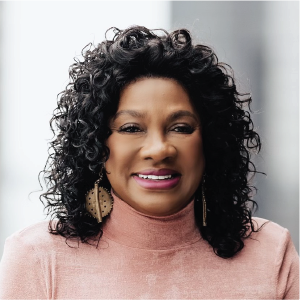
Mar 29, 2022 | The Latest News
The People Have Spoken!
Ethics ban on campaign contributions advances to full Council
Today, the City Council committee that oversees the regulation of Entergy, AT&T, and Cox Communications voted unanimously to approve a new ethics law to ban campaign contributions from these and other companies regulated or contracted by the City Council.
More than 50 New Orleans residents gave comments in support of the ethics ban. The City Council is expected to vote on it at the regular meeting on April 7.
 “The Council committee’s vote for the ethics ban on campaign contributions is an important step forward for equity and justice in New Orleans. We don’t want energy costs, drainage projects, and what we do in this climate crisis to have the undue influence of money from companies regulated or contracted by the City Council. Thanks to our partner organization, the Greater New Orleans Interfaith Climate Coalition (GNOICC), for making this possible. We applaud Councilmember Helena Moreno for introducing this necessary amendment to the Ethics Code, as well as Councilmembers J.P. Morrell, Joe Giarrusso, and Freddie King for co-sponsoring it.” said Dr. Beverly Wright, Executive Director of the Deep South Center for Environmental Justice.
“The Council committee’s vote for the ethics ban on campaign contributions is an important step forward for equity and justice in New Orleans. We don’t want energy costs, drainage projects, and what we do in this climate crisis to have the undue influence of money from companies regulated or contracted by the City Council. Thanks to our partner organization, the Greater New Orleans Interfaith Climate Coalition (GNOICC), for making this possible. We applaud Councilmember Helena Moreno for introducing this necessary amendment to the Ethics Code, as well as Councilmembers J.P. Morrell, Joe Giarrusso, and Freddie King for co-sponsoring it.” said Dr. Beverly Wright, Executive Director of the Deep South Center for Environmental Justice.
GNOICC proposed the ban on campaign contributions from companies regulated or contracted by the City Council, which was approved by the Ethics Review Board in August 2021. Councilmember Helena Moreno introduced the legislation in February that was voted on today by the Utility, Cable, Telecommunications, and Technology Committee of the City Council.

Mar 25, 2022 | The Latest News
NEW DATE! TUESDAY, MARCH 29, 2022 at 11AM!
On Tuesday, March 29, 2022 at 11:00 am, the Utility Committee of the City Council plans to hold a public meeting to hear comments and vote on a proposed ethics law that bans campaign contributions. A vote in favor by the Committee moves the proposed ethics law to the full City Council for a vote. Make your voice heard. Attend the meeting. Call, email or tweet your Councilmembers. Ask everyone you know in New Orleans to do the same.
WHAT DOES THE PROPOSED ETHICS LAW PROHIBIT?
- “No Councilmember or candidate seeking the office of Councilmember shall accept or otherwise receive a campaign contribution or any other financial benefit of any value from:
- Any entity that provides an electric or gas utility, cable, telecommunications or technology service regulated by the City Council;
- Any political action committee, director or executive staff person of a corporation or entity regulated by the City Council;
- Any person, firm or entity with a professional service contract awarded by the City Council; or
- Any person, firm or entity with a professional service contract awarded by the New Orleans Sewerage and Water Board.”
Click HERE to view the full text.
HOW CAN YOU HELP? MAKE YOUR VOICE HEARD!
Attend the Utility Committee meeting and make a comment in support of the proposed ethics law. The meeting starts at 11:00 am on Tuesday, March 29, 2022 in the Council Chambers at City Hall, 1300 Perdido Street.
he public comment form will open on Monday, March 28. Be sure to send your comment no later than 8:00AM, Tuesday, March, 29 so that it can be read at the meeting. Select agenda item “Ordinance Cal. No. 33,367 – Prohibited Campaign Contributions.” To submit your comment to the Council Utility Committee, click here.
Email your Councilmembers and tell them to vote “yes” on the proposed ethics ordinance. Please note that Councilmember Helena Moreno (At-Large) is sponsoring the proposed ethics law. Councilmembers on the Utility Committee are in bold and have an asterisk next to their names.
Helena Moreno (At-Large) – helena.moreno@nola.gov*
J.P. Morrell (At-Large) – jp.morrell@nola.gov*
Joe Giarrusso (District A) – joseph.giarrusso@nola.gov*
Lesli Harris (District B) – lesli.harris@nola.gov
Freddie King (District C) – freddie.king@nola.gov*
Eugene Green (District D) – eugene.green@nola.gov
Oliver Thomas (District E) – oliver.thomas@nola.gov*
BACKGROUND:
The Greater New Orleans Interfaith Climate Coalition and its partner organizations proposed an ordinance, a local law, to strengthen the City of New Orleans Code of Ethics to prohibit a campaign contribution or other financial benefit from a utility provider or other entity that is regulated or contracted by the New Orleans City Council.
The passage of this ordinance is a necessary safeguard against the potential for undue influence on energy costs, climate policies, and other important issues handled by the Council that impact the daily lives of all New Orleanians.
The Ethics Review Board unanimously voted in favor of this proposed ethics law. Councilmember Helena Moreno is sponsoring it.
Supporting Partners:


